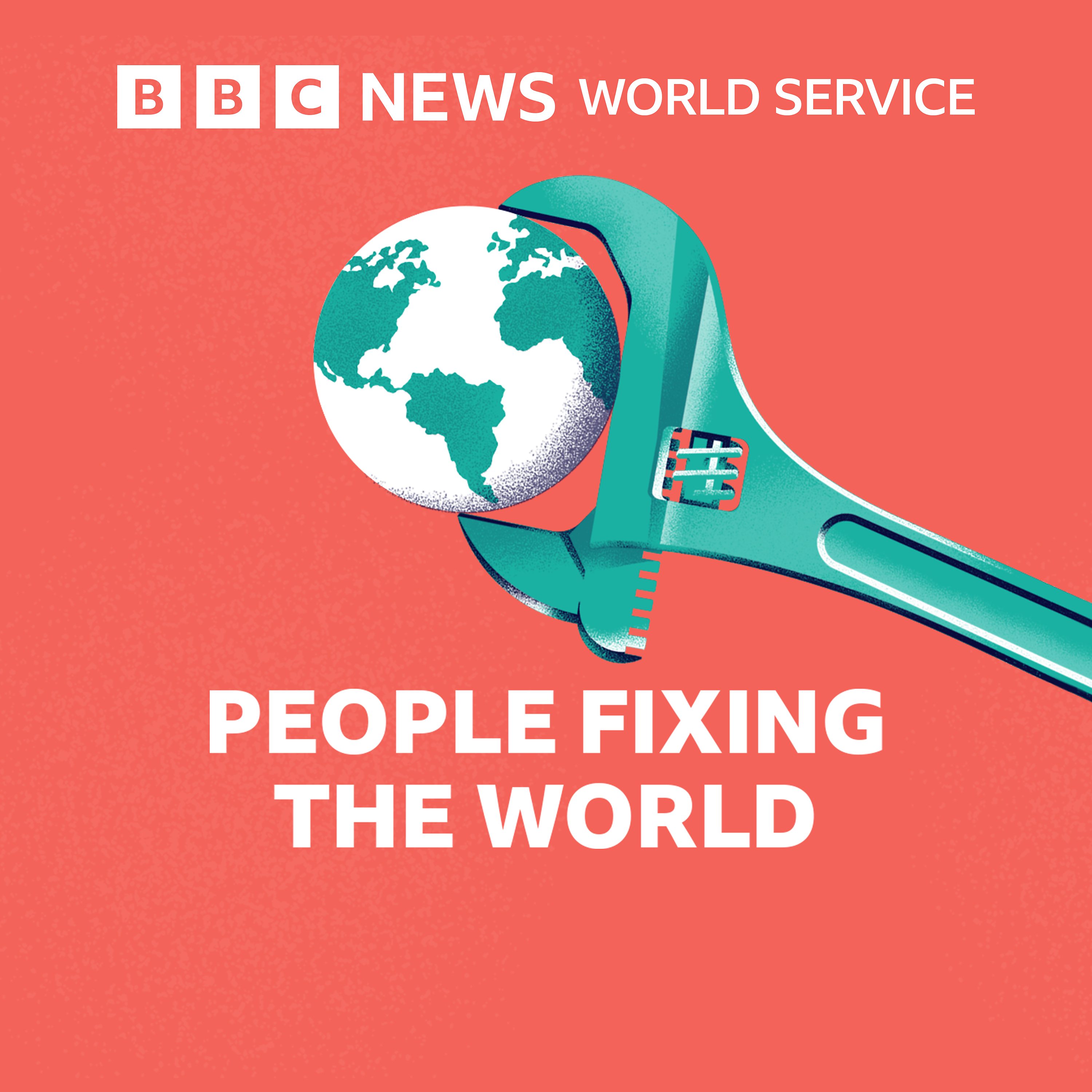

People Fixing the World
BBC World Service
Brilliant solutions to the world’s problems. We meet people with ideas to make the world a better place and investigate whether they work.
Episodes
Mentioned books

Aug 4, 2020 • 24min
Prison Voicemail: Messages from behind bars
The Prison Voicemail app connects inmates and their families, helping them stay in touch throughout a sentence.
We hear a mum and daughter using the messages to rebuild their relationship, and find out how it helps children who are separated from their dad.
Producer/ reporter Ruth Evans

Jul 28, 2020 • 26min
Financing the forests
Protecting the rainforest could make people millions of dollars under a pioneering new scheme.Bankers and conservationists have teamed up to regrow a large area of Indonesia’s jungle where endangered orangutans and tigers live. Reporter: Jo Mathys Image: An orangutan (Getty Images)

Jul 21, 2020 • 25min
Life-saving surgery, but not by a doctor
Nurses and midwives in Ethiopia are being trained to perform emergency operations, saving thousands of lives.People Fixing the World follows one of them, Seida Guadu, as she operates to try to save the lives of a mother and her unborn child.This podcast was first published on 25 June 2019.Reporter: Ruth Evans
Producers: Lily Freeston and Hadra Ahmed

Jul 14, 2020 • 30min
New uses for old solutions
Two life-saving apps have been adapted to fix problems caused by the Covid-19 pandemic - hear how ideas we’ve visited before have developed and grown.One of them has been helping ambulance drivers find their way to field hospitals; the other has been finding volunteers to run errands for people who are vulnerable. Presenter: Daniel Gordon
Reporters: Ruth Evans, Nick Holland and Richard Kenny
Picture credit: Getty Images

Jul 7, 2020 • 24min
How to get everyone online
From balloons in the stratosphere to swarms of satellites in space, the race to get everyone online is heating up. The internet may never be more useful than during the coronavirus outbreak. It provides us with the latest health information, educates our kids and lets us communicate with our loved ones face to face.
But only half of the world’s population is online.
Tech evangelists around the world are trying to change that. Using balloons and satellites, soon even the most remote areas on Earth will be able to log on.
But there is more to getting everyone online than the strength of the signal. People Fixing the World investigates. Produced and presented by Tom CollsImage: Loon

Jun 30, 2020 • 24min
A future without bees
Tech companies have developed drones to drop pollen on orchards or shoot it at crops through pipes from tractors. They’re responding to a crisis in insect pollination as studies suggest numbers of both wild pollinators and farmed bees are declining. This could have a serious knock-on effect on how we grow our fruit and veg. But some experts argue high-tech alternatives are a short-term solution to a much bigger and long-term problem. Presented and produced by Claire Bates

Jun 23, 2020 • 24min
How tech is tackling wildlife trafficking
New technology is helping in the fight against wildlife poaching. Computer scientists have created a programme that uses artificial intelligence to predict where poachers are going to strike; a new generation of smart cameras is catching the criminals red-handed; and the latest police forensic techniques are being adapted to investigate these crimes.
The aim is to put a stop to the illegal trade of wildlife trafficking, which is worth billions of dollars and is threatening the survival of species such as elephants, rhinos and tigers. Each year 20,000 elephants are killed for their ivory, according to WWF estimates.
Reporter and producer - Richard Kenny for BBC World Service

Jun 16, 2020 • 24min
Personality tests for loans
A short online test that reveals attitudes, opinions and thought processes is being used to help decide whether to give people loans.
The idea is to use psychometric tests to give people with little or no credit history a better chance of getting support and investment.
New ways of providing financial services are needed because 1.7 billion people have no access to any kind of formal banking facilities, according to the World Bank. Known as the unbanked, they deal only in cash. This can make it harder to reduce poverty, save money or invest for the future.
Cheap mobile phones and good network coverage in Nigeria are also transforming the lives of people who previously only dealt in cash.
Presented and produced by Anisa Subedar
Picture credit: Getty Images

Jun 9, 2020 • 24min
Kids fixing the world
This week we look at four brilliant inventions by children: a phone app to stop drivers missing road signs; a robot that is activated when a vulnerable person falls over; a tool to help fire departments predict the likelihood of wildfires, and a way to make your fish tank double as a vegetable patch for microgreens.The future engineers and scientists behind these innovations are aged between 12 and 16 and were all entrants in the UK’s Big Bang Competition. Head judge Helena Dodd joins William Kremer to discuss what makes a winning design, and what grown-ups everywhere can do to unleash the problem-solving power of the next generation.Reported and produced by William Kremer.Picture: Freddie with Fallbot

Jun 2, 2020 • 23min
No more bosses
Can companies operate better without managers? We hear from people who’ve got rid of managers and say it has helped them do a better job, made them happier and saved money. But there are pitfalls, too. Co-ordination and hiring talent for what are usually considered top management jobs can be a challenge when there’s no traditional hierarchy.Produced and presented by Dina Newman.Picture credit: Getty Images


